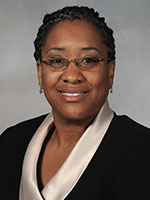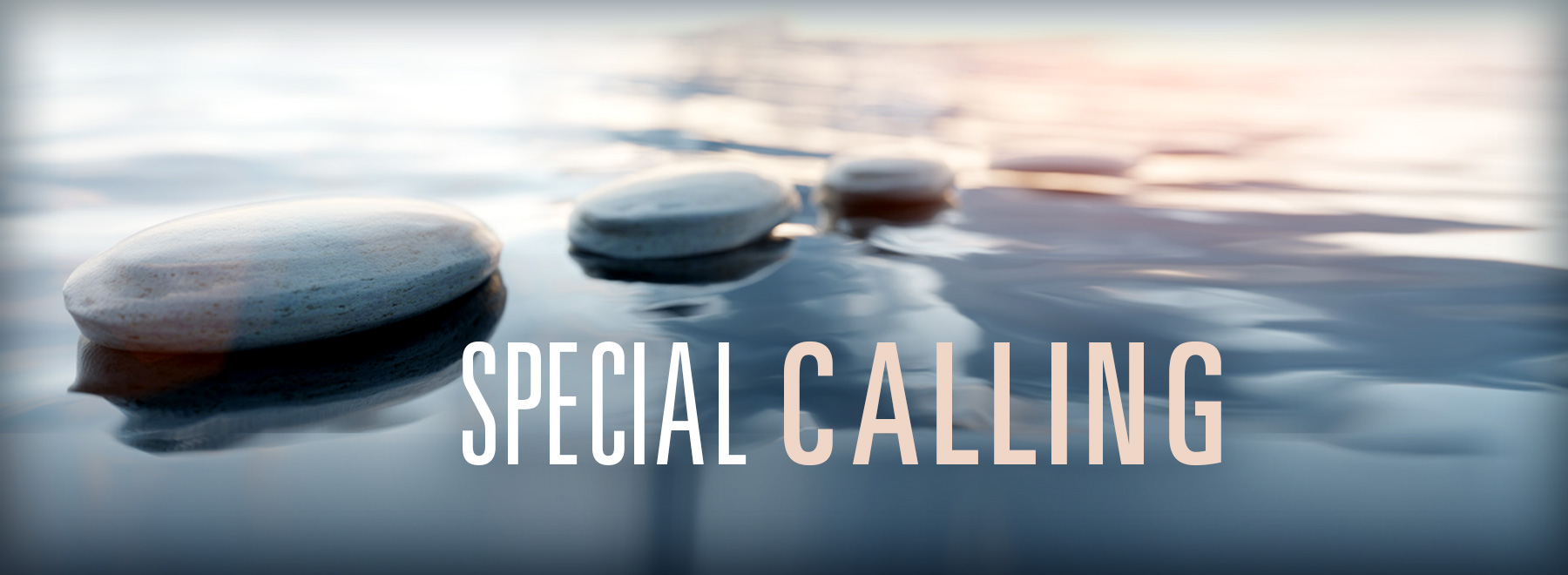Pastoral Services bears witness to compassionate COVID-19 care
Doris Whitaker did not want to go into the room, just one of many holding a patient with COVID-19.

The call had come from the Medical Intensive Care Unit: the patient wanted to see a chaplain in the hospital room; no prayers, just presence.
And Whitaker, director of pastoral services at the University of Mississippi Medical Center, is certainly a chaplain, but one who was “dealing with fear,” she said. “I cried; I did.”
Like practically everyone else at the Medical Center, the three members of the pastoral services staff – Whitaker, Linda McComb and Mark Gilbert – have been consumed by the pandemic, as a professional and as a person wounded by grief and fear.
Whitaker caught the virus early on, in March, she said, and was out for three weeks.
Gilbert, the newest member of the staff, joined the Medical Center on April 6, just five days after his father died in Detroit, Michigan, another victim of the virus.
“We weren’t able to have a funeral, and my family is still grieving,” Gilbert said. “My father was a hard worker, a mechanical engineering technician at a manufacturing plant. I chose to honor him by coming here and getting to work.
“I believe he would have asked me to do this.”
For weeks, as Whitaker recovered, McComb was the sole chaplain at the Medical Center, until Gilbert arrived.
It was McComb who had the idea to honor the patients who had died from COVID-19 at the Medical Center, placing stones on the University Hospital Chapel’s altar table to represent each one, a display highlighted in the Sept. 24 virtual memorial service, “Through Shadow and Light: Reflections on Our COVID-19 Journey.”
Although Gilbert’s father died nearly 1,000 miles from Jackson, McComb found a stone for him, too.
“I appreciate that she did that,” Gilbert said. “My father is right there on the table.”
Whitaker, McComb and Gilbert gathered in the chapel recently to describe for this article how COVID-19 dominated their days and nights for months. Talking it out is something they have been doing already, for each other.
“I’ve discovered something here that is different from other hospitals I’ve been in,” Gilbert said. “It’s the way we care for each other here. We get together and are able to talk about what it means to be a chaplain at this time.
“We ask each other how we are doing personally. It can be fatiguing, but it’s also satisfying.”
Said McComb, “It was brave of Mark to start work here in the middle of a pandemic. And while the virus may not be our only focus every day any more, it’s still a part of our everyday reality.”
A major portion of that reality: “We have always dealt with a lot of grief,” McComb said, “but because of the restrictions imposed by COVID, there has been a lot of complicated grief. It has been difficult not being able to hold people or hug them. We’ve had to find ways to be together apart.”
Traditional services have been cancelled, including one for Good Friday, although through Zoom or Webex, some were salvaged virtually. And they did host a Blessing of the Hands, a ritual offering a healing touch to health care providers on the front lines. Ironically, and necessarily, it was contactless.
“We met Emergency Department staffers with a basin and a pitcher of water,” McComb said. “We poured the water over their hands and blessed them.”
The chaplains have tried to relieve the stress and some of the grief that torments patients, their families and health care workers every day. The nearly 200 stones in the chapel represent that grief, but also the nobility of each singular life.
“Instead of saying 189 or so people have died,” Whitaker said, “it says, ‘here, a person died; a person died here; here, a person died.’”
Stones are part of some religious traditions. Within the Jewish faith, a visitor to a grave will leave a stone to let others know that someone had been there, and cared.
Another tradition is the meditation labyrinth. In the chapel, the chaplains have placed on the floor a cloth patterned with a winding, circuitous path leading from the outer edge to the center. It’s an invitation to take a walk and quiet the mind.
“It’s a walk with the sacred, a walk with peace,” said Whitaker, who was skeptical the first time she took the “journey. “But, sure enough, when I got to the middle, I heard the Lord speak to me.”
The labyrinth is not a maze, McComb said.
“There are no dead ends, and you cannot get lost.”
To further lighten the profound sense of loss that is a hallmark of COVID-19, the chaplains, in response to a request from Medical Center leaders, have been sending out “messages of hope” over the hospitals’ P.A. systems, every Tuesday morning at 9 since April.
These interludes of 30 seconds or less begin with the sound of a chime struck three times. On April 14, Whitaker quoted the Japanese writer, Haruki Murakami: “And once the storm is over, you won’t remember how you made it through, how you managed to survive. You won’t even be sure whether the storm is really over.
“But one thing is certain: When you come out of the storm, you won’t be the same person who walked in. That’s what this storm’s all about.”
Through the storm, the chaplains have realized, more than ever, that they can’t heal the body, but there is more than one way to heal. Besides the altar stones, the meditation labyrinth, the messages of hope, they have offered a more literal version of nourishment: rice cereal treats and doughnuts, delivered to the staff who care for patients with COVID-19.
For McComb, the return, the compensation, moves her to tears.
“We have always been the ones who could bear witness to pain without being able to fix it,” she said, “but we have been able to witness nurses earnestly caring for patients whose families are not able to be there. Making sure the bed is clean, making sure everything is orderly.
“We have been able to witness compassionate care, and that’s important to us. Sometimes we will be standing outside a room praying; we can see what the nurses are doing. And it’s a lot. It’s amazing how considerate they are, paying attention to the little things that give dignity and respect.
“So, seeing this, you as a chaplain don’t feel adequate to stand in for the family the way the nurses do. But as a friend of mine said, ‘All you can do is bring in your little bit of bread and little bit of light.’”
In deference to the light, Whitaker swallowed her fear and entered the COVID-19 patient’s room.
“I suited up and I went in and did what I needed to do,” she said. “The patient was awake and alert on a CPAP machine. The patient did not want a prayer. The request was to see a chaplain. But I prayed anyway, and afterward the patient gave me a thumbs up. I gave a thumbs up, and I left.
“A few hours later, I came back to the room to see if the family had made it there, but the patient had died. It was very holy. And it’s part of the calling we have: Fear not.”
The above article appears in CONSULT, UMMC’s monthly e-newsletter sharing news about cutting-edge clinical and health science education advances and innovative biomedical research at the Medical Center and giving you tips and suggestions on how you and the people you love can live a healthier life. Click here and enter your email address to receive CONSULT free of charge. You may cancel at any time.



